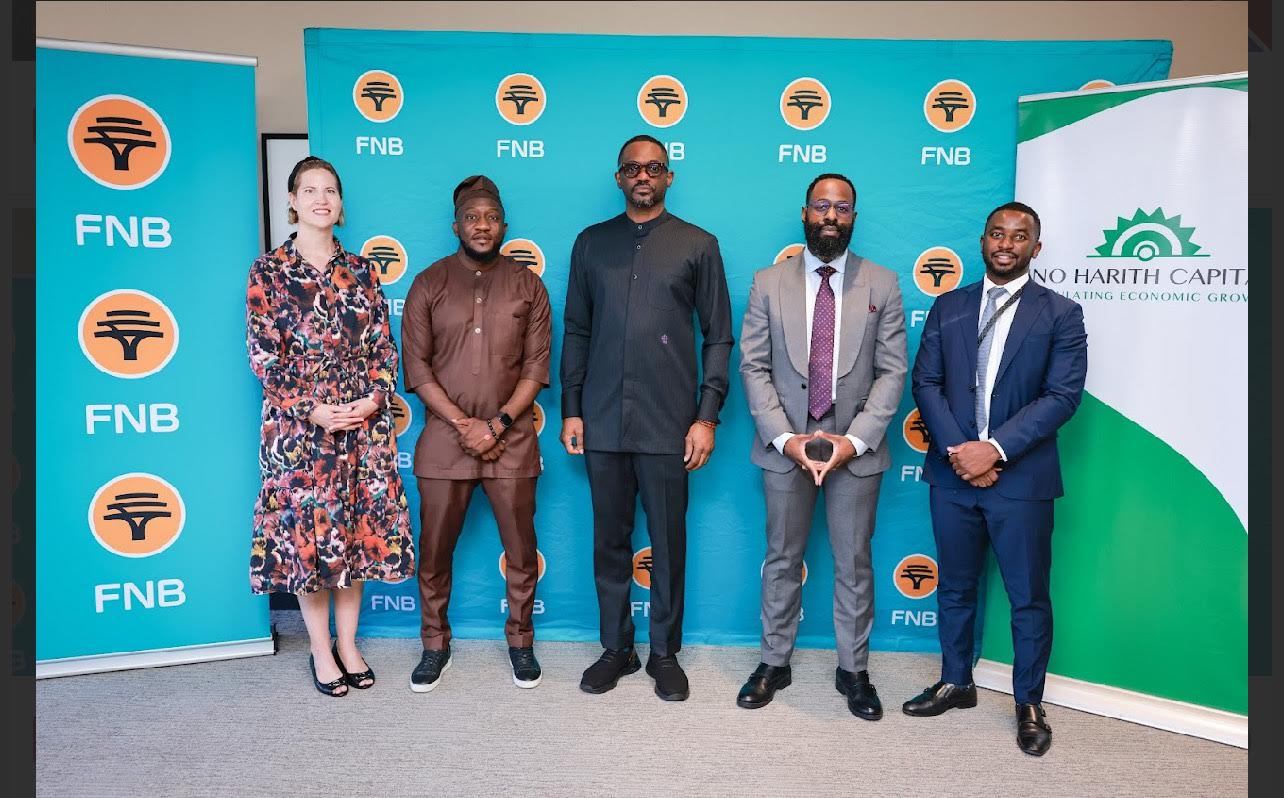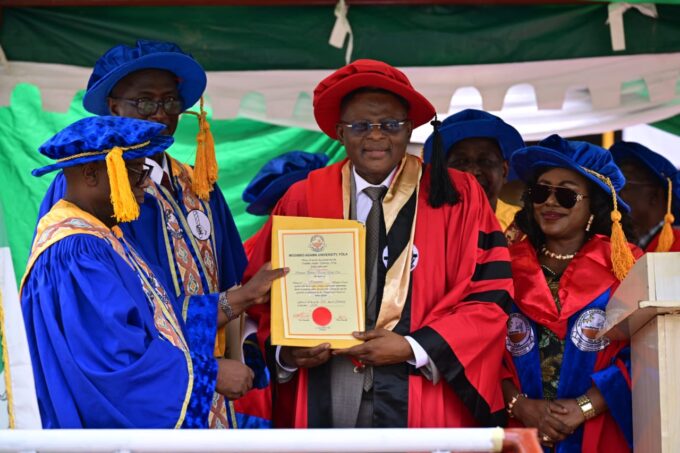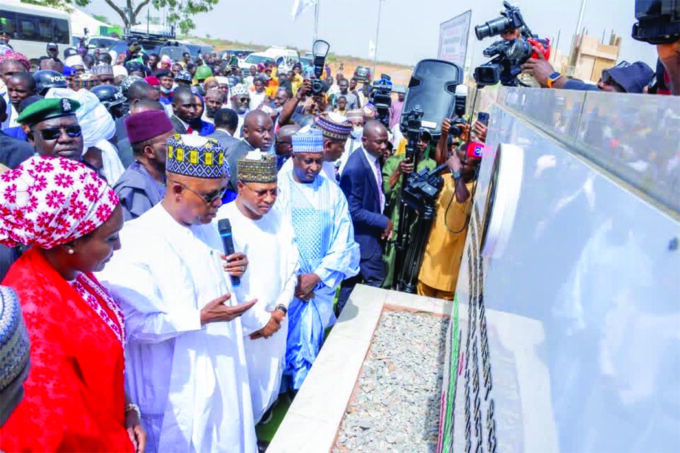Moneda Capital Management, Ino Harith Capital, and First National Bank (FNB) of Namibia have joined forces in a pioneering partnership to accelerate the growth of Small and Medium Enterprises (SMEs) within Namibia’s energy, oil, and gas sectors. This initiative, through an innovative Memorandum of Understanding (MoU), aims not only to bridge financing gaps for SMEs in Namibia but also to create a ripple effect of economic benefits across Africa. Chiemelie Ezeobi writes that by empowering local businesses, fostering job creation, and encouraging economic diversification in the sector, this collaboration stands as a model for boosting Africa’s development—attracting investment, building local capacity, and unlocking the continent’s full potential in the global economy
In the heart of southern Africa, a strategic partnership recently took root—one that could serve as a blueprint for SME growth across the continent. Moneda Capital Management Limited, in collaboration with Ino Harith Capital, recently signed a groundbreaking Memorandum of Understanding (MoU) with First National Bank (FNB) of Namibia to channel over NAD 1 billion into the growth and empowerment of Namibia’s critical Small and Medium Enterprises (SMEs) within the energy, oil, and gas sectors.
More than a financial agreement, THISDAY gathered that this initiative signals a broader movement toward economic transformation as it aims to unlock the potential of SMEs—those agile, often overlooked engines of productivity and innovation—that form the backbone of developing economies. And for Africa, where natural resources abound but local capacity often lags behind, the significance of this deal is immense.
Essentially, Moneda and Ino’s strategic partnership is designed to support SMEs in Namibia’s most strategic sectors—oil & gas, energy, and mining as it merges Moneda’s robust platform of alternative credit solutions with Ino Harith Capital’s local expertise to provide capital access to SMEs that would otherwise be excluded from conventional finance. Together, they aim to build the next generation of African industrial businesses by making flexible, collateral-free financing a reality.
Bridging the Financing Gap
For too long, SMEs in Namibia and across Africa have struggled to access meaningful financing—particularly in high-capital sectors like oil, gas, and energy. Traditional banks, risk-averse by nature, often require physical collateral and track records many smaller enterprises cannot provide.
Moneda Capital, leveraging its experience across resource-rich African economies such as Nigeria and the Democratic Republic of Congo, is stepping into that void. Through alternative credit models and innovative financing solutions, Moneda will provide SMEs with risk capital and operational support designed to bypass traditional bottlenecks. Their aim being to make collateral-free financing the norm, not the exception.
“Having worked across several African countries, we understand the nuances and limitations of traditional finance in resource-driven markets,” said Ejike Egbuagu, CEO of Moneda Capital. “Our model is designed to empower critical SMEs with the capital and tools they need to grow, scale, and compete.”
A Strategic Alliance with Purpose
The collaboration between Moneda, Ino Harith Capital, and FNB Namibia is underpinned by a shared vision to accelerate the emergence of local enterprises as major players in Namibia’s industrial transformation. At its core is a local content accelerator programme, designed to ensure that homegrown businesses do not remain spectators in their country’s natural resource boom.
FNB Namibia, one of the country’s most influential financial institutions, has committed more than NAD 1 billion through this partnership to bolster the SME ecosystem. The initiative directly supports local enterprises in the oil and gas, energy, and extractive sectors—industries that are expected to anchor Namibia’s future economic growth.
Moneda’s collaboration with Ino Capital, a Namibia-based financial advisory firm with deep roots in the local economy, proved pivotal in formalising the partnership with FNB.
“We’re excited about the potential for growth here in Namibia. Having already worked in Nigeria, DRC, and other parts of Africa, we understand the dynamics and needs of SMEs in resource-driven economies,” said Egbuagu. “The partnership with FNB Namibia will provide the operational backbone for growing SME financing in Namibia, particularly in oil and gas, and we believe this will significantly transform the local economy.”
Unlocking Potential, Inclusion
The emphasis on local content is not accidental. In recent years, Namibia has taken deliberate steps to ensure that its burgeoning oil discoveries and ambitions in renewable energy translate into tangible benefits for its citizens. But without strong local businesses to absorb and deliver on the opportunities, much of that value risks flowing abroad.
That’s why the structure of this deal matters. By funnelling patient, flexible capital into Namibia’s industrial SMEs, the initiative lowers the barriers for participation in lucrative supply chains and contract opportunities within the oil and energy sectors.
“Our goal is to accelerate the development of SMEs within this critical space by introducing alternative credit models that bypass traditional barriers to entry, such as the need for physical collateral,” added Egbuagu. “We’re committed to leveraging our expertise to enable SMEs to reach new heights, creating a ripple effect of growth that can be felt across the broader Namibian economy.”
FNB Namibia: A Bank with a Vision
As one of Namibia’s most established banks and a subsidiary of the FirstRand Group, FNB Namibia has long demonstrated its commitment to inclusive financial services. Its role in this MOU signals not just a willingness to fund SME growth but a strategic intent to shape the country’s economic future.
“At FNB, we believe in nurturing deep-rooted relationships with our clients, especially those who are crucial to our economy’s growth—SMEs,” said Chuka Okafor, FNB Namibia’s Specialised Finance and Strategic Advisor. “This partnership represents a new chapter for Namibia’s local content sector, particularly in energy and oil & gas, and we are proud to be part of the collaborative effort to drive this transformation. Through this partnership, we’re positioning Namibian SMEs to thrive, contributing meaningfully to our economy.”
This long-term view—investing now to build the capabilities of Namibian firms to support billion-dollar industries—could prove to be one of the most forward-looking strategic plays by a Namibian financial institution in recent memory.
Which is a plus given that FNB Namibia is one of the country’s leading financial institutions, offering a comprehensive range of banking services to individuals, businesses, and government. With a footprint that reaches deep into the Namibian economy, FNB has played a critical role in fostering financial inclusion and supporting SME development across sectors including agriculture, mining, and now energy. As a member of the FirstRand Group, FNB continues to prioritise sustainable growth and innovation.
From Namibia to the Continent
Most importantly, the broader implication of this partnership extends well beyond Namibia’s borders. Africa is home to vast oil, gas, and mineral reserves, but the continent continues to export raw commodities while importing refined goods and technical services. The gap between resource ownership and value retention is often widened by the absence of strong, capable local SMEs that can build and sustain value chains.
In this light, the Moneda-Ino-FNB initiative is not just about Namibia—it’s a proof-of-concept for what’s possible across Africa. With the right financing tools, strategic collaborations, and local insight, SMEs in other African nations can be similarly empowered to lead in industries traditionally dominated by multinationals.
The Moneda-Ino partnership, specifically, is built to address this opportunity. Moneda Invest Africa brings deep knowledge of alternative credit financing, while Ino Capital’s embeddedness in the Namibian economy ensures that solutions are tailored to local realities.
The Road Ahead
If successful, which they have no doubt it would be, this partnership could mark a turning point for SME development in Africa’s resource economies as the ripple effects are potentially profound: job creation, technology transfer, skills development, increased tax revenues, and—most importantly—a shift in ownership and control of African wealth from foreign interests to local hands.
While the real victory will be measured in years, but for now, one thing is clear: Namibia has taken a bold step by bringing in Moneda and its wealth of expertise and in doing so, it has reignited a conversation across Africa—one where SMEs are no longer seen as small players, but as critical engines powering the continent’s next industrial revolution.

















Leave a comment